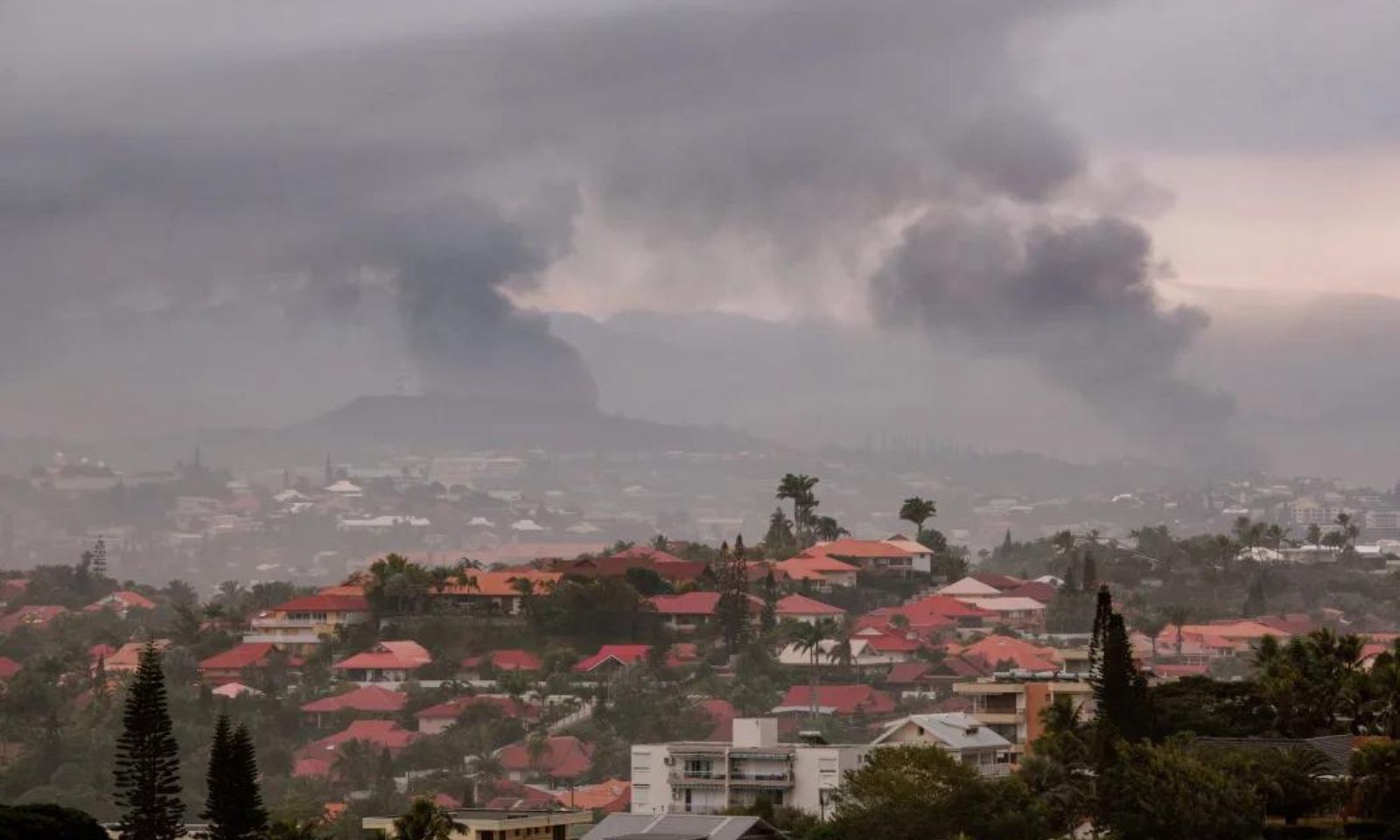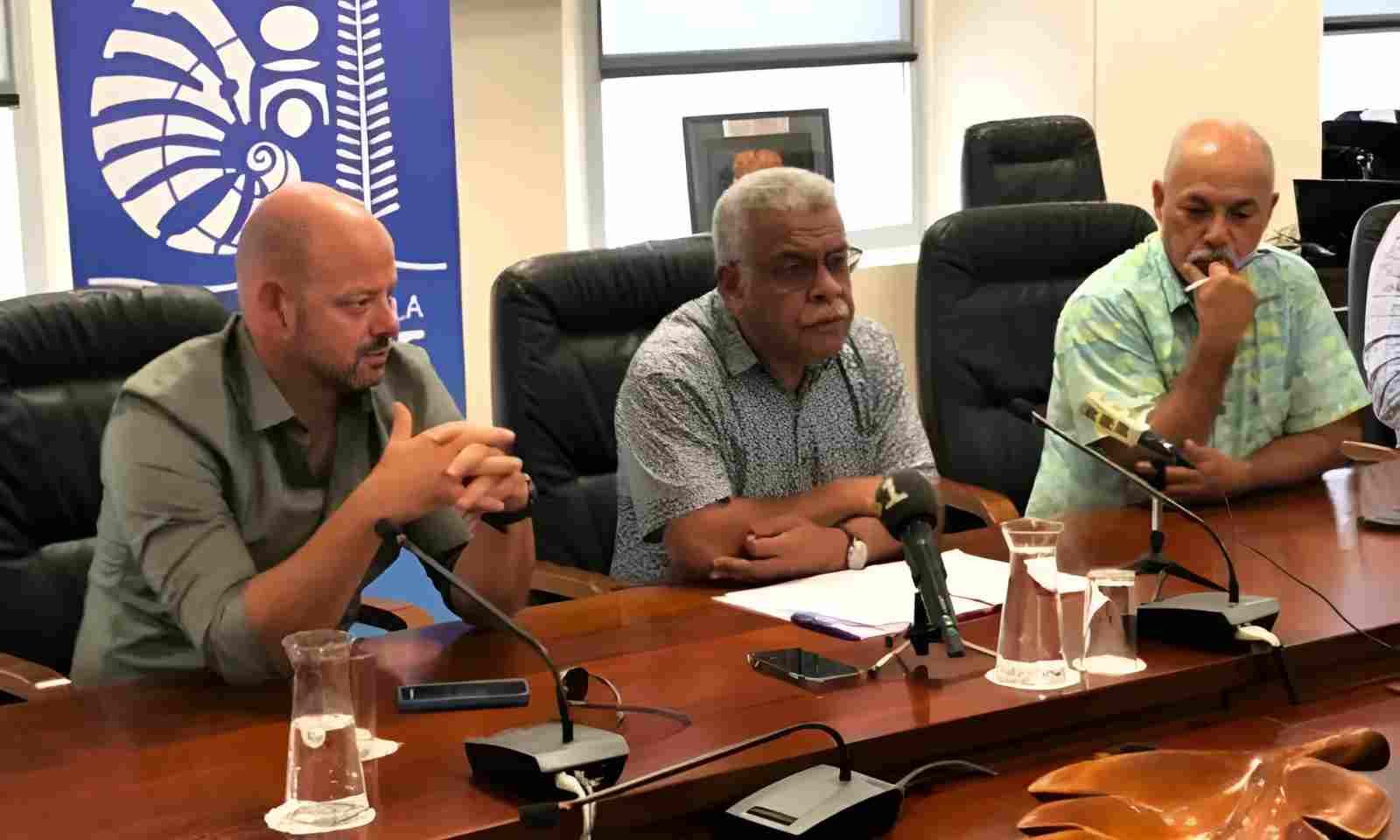

New Caledonia's President Louis Mapou.
Photo/Gouvernement de la Nouvelle-Calédonie
Block resignation topples New Caledonia's government
The tensions came to a head over the past few months, following the destructive and deadly insurrectional riots that started on 13 May.



Fiji’s former Prime Minister and police chief charged with inciting mutiny

Immigration reassesses toddler's declined visa request as Children's Commissioner steps in

US funding cuts threaten to 'dry up' future of Pacific scientists - expert


Fiji’s former Prime Minister and police chief charged with inciting mutiny

Immigration reassesses toddler's declined visa request as Children's Commissioner steps in
New Caledonia's government was toppled on Christmas Eve due to a mass resignation from its ranks.
Environment and Sustainable Development Minister Jérémie Katidjo-Monnier said he was resigning from the cabinet with immediate effect.
Katidjo-Monnier is the sole representative from Calédonie Ensemble (a moderately pro-France party), one of the parties represented at the Congress.
He also said in a letter that all other people from his party's list who could have replaced him, should the situation arise, had also resigned as a block.
The letter was sent to Government President Louis Mapou and copied to the French Pacific territory's Congress President, Veylma Falaeo.
The government of New Caledonia is made up of the parties represented at the Congress under a proportional principle of "collegiality", - implying that all of its members and the parties they represent are supposed to work together.
In his letter, Katidjo-Monnier elaborated on growing tensions between Mapou's government and the Congress MPs.
The tensions came to a head over the past few months following the destructive and deadly insurrectional riots that started on 13 May.
One particular point of contention was Mapou's efforts to secure a loan of up to €1 billion (NZ$1.8b) from France, under a "PS2R" (reconstruction, refoundation and salvage) plan to rebuild New Caledonia after the riots' damage (estimated at some €2.2 billion - NZ$4.06b) and the subsequent thousands of job losses.

Smoke bellowing from a distance in the capital Noumēa during the height of the unrest in May. Photo/supplied
Congress vs government: Two opposing recovery plans
At the same time, the Congress has been advocating for a different approach: a five-year reconstruction plan to secure funds from France.
A bipartisan delegation was last month sent to Paris to advocate for the plan - not in the form of reimbursable loans, but non-refundable grants.
The bipartisan delegation's "grant" approach was said to be supported not only by Congress but also by provincial assemblies and New Caledonia's elected MPs at French Parliament Houses.
The delegation was concerned that the loan would bring New Caledonia's debt to unprecedented and unsustainable levels and that, at the same time, funds for the "PS2R" would be tied to a number of pre-conditioned reforms deemed necessary by France.
Katidjo-Monnier said neither the "obligation" for Congress and the Government to act in "solidarity" nor the "spirit of the Nouméa Accord" had been respected.

Pro-independence supporters rally, calling for self-rule. Photo/supplied
Approached by local media on Tuesday, Mapou declined to comment.
'Lack of solidarity'
The block resignation from Calédonie Ensemble entails that the whole government of New Caledonia is deemed to have resigned and should now act in a caretaker mode until the inception of a new government.
The election of a new government is to take place within 15 days, according to the procedure stipulated in New Caledonia's 1999 organic law.
One of the initial stages of the process is for Congress to convene a special sitting to choose the number of members who should field this new government (between five and 11) and then proceed with their election.
The resulting government then elects a President.

President Louis Mapou (centre) holds a press conference with some of his ministers in late November. Photo/Gouvernement de la Nouvelle-Calédonie
Several governments have fallen under similar mass resignation circumstances and this "mass block resignation" ploy.
It has now been used 11 times since 1999, each time causing the downfall of the government.
Louis Mapou's government was the 17th since New Caledonia's autonomous government system was introduced in 1999.
He came to office in July 2021, months after the list of government members was chosen, on 17 February 2021.
This was the first time a local government's leader belonged to the pro-independence camp.